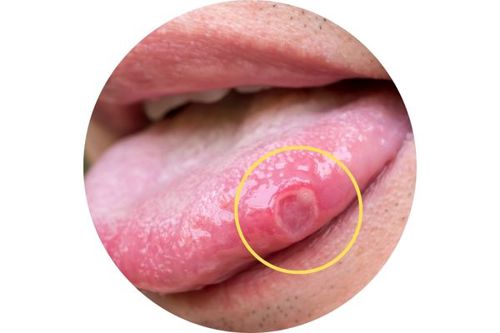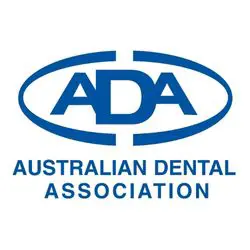
Key messages
- Oral cancer is an aggressive disease with a survival rate of only 50% over 5 years.
- Oral cancer can affect people of all ages.
- It is impossible to completely prevent oral cancer, but you can take steps to reduce your risk.
Oral cancer is a potentially fatal disease that can affect people of all ages. It is an aggressive disease with a survival rate of only 50% over 5 years. This is due to many factors.
- It can often not be found until the cancer is advanced.
- It often does not cause symptoms until it is advanced.
- It is caused by a range of lifestyle risks and many of these are part of your everyday life.
The type of treatment you may need depends on the stage of the cancer when it is diagnosed. This can include surgery, radiation therapy and/or chemotherapy.
Squamous cell carcinoma is the most common cancer that develops in the mouth.
Signs to look out for
Oral cancer includes a range of cancers that affect any part of the oral cavity. This includes the lips, tongue, cheeks, bottom of the mouth, gums, back of the throat or salivary glands. It most commonly occurs on the sides of the tongue and the floor of the mouth.
Oral cancer can have many appearances. It can also look very similar to other conditions that can develop in the mouth. The cancers often have no symptoms when they first develop. Pain is more common when the cancer is advanced.
Signs may include:
- a sore, irritation, lump or change in the thickness of soft tissues
- an ulcer that is present for longer than 2 weeks or continues to return over and over again
- blood blister in the mouth that does not heal or repeatedly comes back
- a white or red patch in the mouth
- a continued feeling that something is caught in the throat
- difficulty chewing or swallowing
- difficulty moving the jaw or tongue around
- glands/lymph nodes under the jaw that are swollen and do not go away
- a sore throat that does not go away
- difficulty speaking, or a change in voice
- the tongue or other areas of the mouth feel numb
- swelling of the jaw that causes dentures to stop fitting properly or become uncomfortable to wear.
Do not panic if you feel that one or more of these symptoms apply to you. There can be a number of reasons other than oral cancer for these symptoms. But it is best to see your dentist for a check-up.

Your dentist will check for signs of cancer
Dentists check for signs of cancer inside your mouth and around the outside of your face, head and neck during general check-ups. This is why you should still have a dental check-up when you do not have teeth and wear dentures.
Finding oral cancer early is important to try and improve your long-term outcome. It is also important to find changes in the mouth that may develop into cancer. These changes are from abnormal cells that are not cancerous but can turn into cancer. Your dentist may call this a 'pre-cancerous lesion'.
What are risk factors for developing oral cancer?
There are many lifestyle factors that increase your risk of developing oral cancer. Many are part of your everyday life. Alcohol and tobacco are major risk factors for oral cancer development. They introduce cancer-causing substances into the mouth. If you use of alcohol and tobacco at the same time, this greatly increase your risk of oral cancer.
Risk factors include:
Any kind of smoking including vaping, cigarette smoking, cigars, marijuana and any other inhalation habit where you burn the throat increases your risk of oral cancer. The best prevention is quitting. Your dentist can provide advice on strategies to help you quit smoking.
Alcohol consumption at all levels carries with it some level of inherit risk. The Australian Guidelines for Alcohol Intake recommend no more than two standard drinks per day to reduce your risk of alcohol-related diseases. Cancer risk increases with long-term consumption of alcohol rather than the amount consumed each time you drink. Even light drinking (defined as one drink/day) has been associated with oral cancers. The regular use of alcohol-containing mouthwashes is safe and have not been shown to increase risk of oral cancer.
Exposure to, and transmission of, the Human Papilloma Virus (HPV) through oral sex increases the risk of developing oral cancer, particularly oropharyngeal (throat) cancer. HPV can affect both males and females. Participating in oral sex always carries the risk of sexually transmitted diseases including HPV. It is best to take precautions and practice safe sex.
Vaccinations against HPV are available for males and females (Gardasil and Cervarix). Contact your doctor, local immunisation provider or visit www.hpvvaccine.org.au for more information.
The skin on your lips can be easily damaged by sun exposure. Protect your lips from harmful UV rays when out in the sun by applying a minimum of SPF15+ lip balm. As well wear a hat and sunscreen. If you work outdoors, apply a broad-spectrum sunscreen (protects against UVA and UVB) to your lips and face throughout the day to stay protected.
For more information on how to reduce your risk, visit the Cancer Council Australia website.
A poor diet increases the risk of oral cancer by depriving your body of antioxidants and essential vitamins and minerals. This doesn't just mean cutting out junk foods but ensuring you drink plenty of water and have a healthy diet filled with fresh fruit and vegetables. Consult your doctor, dentist or dietician for dietary advice.
Steps to decrease your oral cancer risk
Decrease your risk of developing oral cancer by:
- quitting cigarettes and tobacco
- drinking less or no alcohol
- have the HPV vaccination and practice safe sex.
It is impossible to completely prevent oral cancer but taking these steps can help reduce your risk.


